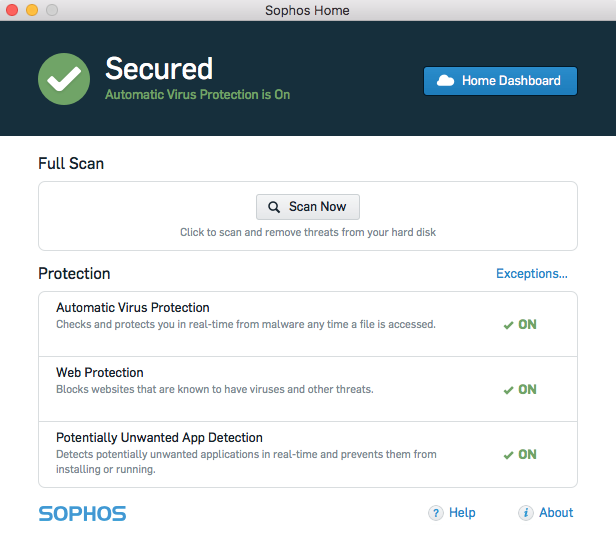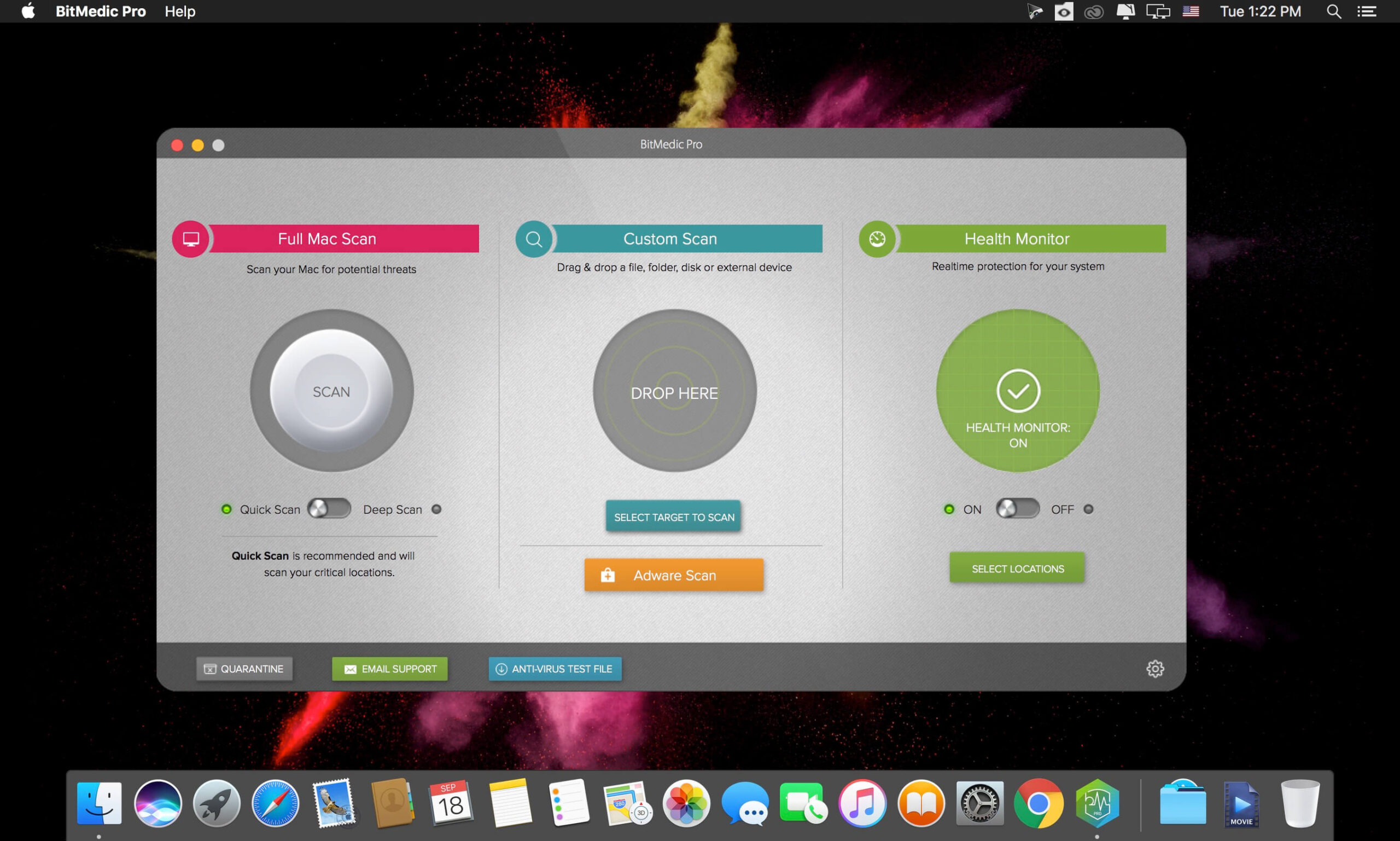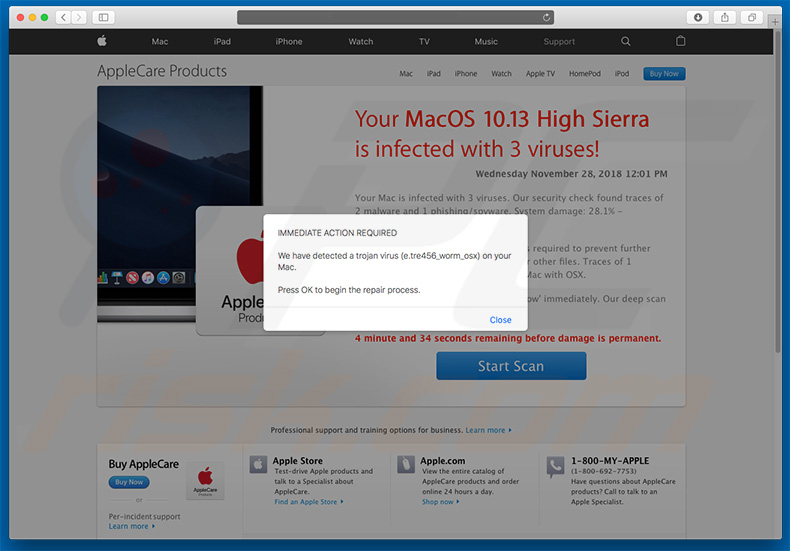- To do this: Open System Preferences Open the App Store preference Make sure that Automatically check for updates and Install system data files and security updates are checked.
- 01 – RanSim Free Ransomware Simulator Tool. How vulnerable is your network against.
Anti Malware Testfile
Intended use
Additional notes:
- This file used to be named ducklin.htm or ducklin-html.htm or similar based on its original author Paul Ducklin and was made in cooperation with CARO.
- The definition of the file has been refined 1 May 2003 by Eddy Willems in cooperation with all vendors.
- The content of this documentation (title-only) was adapted 1 September 2006 to add verification of the activity of anti-malware or anti-spyware products. It was decided not to change the file itself for backward-compatibility reasons.

The current tests of antivirus software for MacOS Catalina from June 2020 of AV-TEST, the leading international and independent service provider for antivirus software and malware. Bitdefender Antivirus for Mac 8.1: 100: 100: 100.
Who needs the Anti-Malware Testfile
(read the complete text, it contains important information)
Version of 7 September 2006
If you are active in the anti-virus research field, then you will regularly receive requests for virus samples. Some requests are easy to deal with: they come from fellow-researchers whom you know well, and whom you trust. Using strong encryption, you can send them what they have asked for by almost any medium (including across the Internet) without any real risk.

Other requests come from people you have never heard from before. There are relatively few laws (though some countries do have them) preventing the secure exchange of viruses between consenting individuals, though it is clearly irresponsible for you simply to make viruses available to anyone who asks. Your best response to a request from an unknown person is simply to decline politely.

A third set of requests come from exactly the people you might think would be least likely to want viruses „users of anti-virus software“. They want some way of checking that they have deployed their software correctly, or of deliberately generating a „virus incident in order to test their corporate procedures, or of showing others in the organisation what they would see if they were hit by a virus“.
Reasons for testing anti-virus software
Obviously, there is considerable intellectual justification for testing anti-virus software against real viruses. If you are an anti-virus vendor, then you do this (or should do it!) before every release of your product, in order to ensure that it really works. However, you do not (or should not!) perform your tests in a „real“ environment. You use (or should use!) a secure, controlled and independent laboratory environment within which your virus collection is maintained.
Using real viruses for testing in the real world is rather like setting fire to the dustbin in your office to see whether the smoke detector is working. Such a test will give meaningful results, but with unappealing, unacceptable risks.
Since it is unacceptable for you to send out real viruses for test or demonstration purposes, you need a file that can safely be passed around and which is obviously non-viral, but which your anti-virus software will react to as if it were a virus.
If your test file is a program, then it should also produce sensible results if it is executed. Also, because you probably want to avoid shipping a pseudo-viral file along with your anti-virus product, your test file should be short and simple, so that your customers can easily create copies of it for themselves.
The good news is that such a test file already exists. A number of anti-virus researchers have already worked together to produce a file that their (and many other) products „detect“ as if it were a virus.
Agreeing on one file for such purposes simplifies matters for users: in the past, most vendors had their own pseudo-viral test files which their product would react to, but which other products would ignore.
The Anti-Malware Testfile
This test file has been provided to EICAR for distribution as the „EICAR Standard Anti-Virus Test File“, and it satisfies all the criteria listed above. It is safe to pass around, because it is not a virus, and does not include any fragments of viral code. Most products react to it as if it were a virus (though they typically report it with an obvious name, such as „EICAR-AV-Test“).
The file is a legitimate DOS program, and produces sensible results when run (it prints the message „EICAR-STANDARD-ANTIVIRUS-TEST-FILE!“).
It is also short and simple – in fact, it consists entirely of printable ASCII characters, so that it can easily be created with a regular text editor. Any anti-virus product that supports the EICAR test file should detect it in any file providing that the file starts with the following 68 characters, and is exactly 68 bytes long:
X5O!P%@AP[4PZX54(P^)7CC)7}$EICAR-STANDARD-ANTIVIRUS-TEST-FILE!$H+H*
The first 68 characters is the known string. It may be optionally appended by any combination of whitespace characters with the total file length not exceeding 128 characters. The only whitespace characters allowed are the space character, tab, LF, CR, CTRL-Z. To keep things simple the file uses only upper case letters, digits and punctuation marks, and does not include spaces. The only thing to watch out for when typing in the test file is that the third character is the capital letter „O“, not the digit zero.
You are encouraged to make use of the EICAR test file. If you are aware of people who are looking for real viruses „for test purposes“, bring the test file to their attention. If you are aware of people who are discussing the possibility of an industry-standard test file, tell them about www.eicar.org, and point them at this article.
Download Anti Malware Testfile
In order to facilitate various scenarios, we provide 4 files for download. The first, eicar.com, contains the ASCII string as described above. The second file, eicar.com.txt, is a copy of this file with a different filename. Some readers reported problems when downloading the first file, which can be circumvented when using the second version. Just download and rename the file to „eicar.com“. That will do the trick. The third version contains the test file inside a zip archive. A good anti-virus scanner will spot a ‚virus‘ inside an archive. The last version is a zip archive containing the third file. This file can be used to see whether the virus scanner checks archives more than only one level deep.
Once downloaded run your AV scanner. It should detect at least the file „eicar.com“. Good scanners will detect the ‚virus‘ in the single zip archive and may be even in the double zip archive. Once detected the scanner might not allow you any access to the file(s) anymore. You might not even be allowed by the scanner to delete these files. This is caused by the scanner which puts the file into quarantaine. The test file will be treated just like any other real virus infected file. Read the user’s manual of your AV scanner what to do or contact the vendor/manufacturer of your AV scanner.
IMPORTANT NOTE
EICAR cannot be held responsible when these files or your AV scanner in combination with these files cause any damage to your computer. YOU DOWNLOAD THESE FILES AT YOUR OWN RISK. Download these files only if you are sufficiently secure in the usage of your AV scanner. EICAR cannot and will not provide any help to remove these files from your computer. Please contact the manufacturer/vendor of your AV scanner to seek such help.
| Download area using the standard protocol HTTP | |||
| – Sorry, HTTP downoad ist temporarily not provided. – | |||
| Download area using the secure, SSL enabled protocol HTTPS | |||
| eicar.com 68 Bytes | eicar.com.txt 68 Bytes | eicar_com.zip 184 Bytes | eicarcom2.zip 308 Bytes |

How to delete the test file from your PC
We understand (from the many emails we receive) that it might be difficult for you to delete the test file from your PC. After all, your scanner believes it is a virus infected file and does not allow you to access it anymore. At this point we must refer to our standard answer concerning support for the test file. We are sorry to tell you that EICAR cannot and will not provide AV scanner specific support. The best source to get such information from is the vendor of the tool which you purchased.
Please contact the support people of your vendor. They have the required expertise to help you in the usage of the tool. Needless to say that you should have read the user’s manual first before contacting them.
Updated: January 8, 2020 Home » Computer and Internet Security » Basic Security And How To Tutorials
As a kid, we’ve all been there and done that – that is downloading pirated software from torrent sites with cracks, be it antivirus, games or Microsoft Office software. Little did we know, hackers knew the reason you download an antivirus program is because you do not have a security software installed therefore you are vulnerable, and the best way to infect your Windows computer is to include a ‘disabled’ antivirus with a trojan horse.
Alternative 2020 Article ➤ 5 Free Antivirus With 60+ Multi-Engines – The Best Antivirus Protection
Comodo Leak Tests used to be a very reliable and popular penetration test tools, unfortunately, they’ve decided to discontinue the product. Even if you decided to come clean and purchase a genuine antivirus, sometimes it might be too late, this is because the virus is to integrated into your system that will disable all new antivirus during installation, rendering them useless while you think you are well protected. One way to find out if your antivirus is working is to simulate an actual ‘harmless’ virus attack.
↓ 01 – RanSim | Free Ransomware Simulator Tool
How vulnerable is your network against ransomware attacks? Bad guys are constantly coming out with new versions of ransomware strains to evade detection. Is your network effective in blocking ransomware when employees fall for social engineering attacks? KnowBe4’s Ransomware Simulator “RanSim” gives you a quick look at the effectiveness of your existing network protection. RanSim will simulate 10 ransomware infection scenarios and show you if a workstation is vulnerable to infection.
- 100% harmless simulation of a real ransomware infection
- Does not use any of your own files
- Tests 10 types of infection scenarios
- Just download the install and run it
↓ 02 – SpyShelter Security Test Tool | Test Windows Security
Security Test Tool presented on this page is a non-malicious application which can be used on live systems. It does not require installation.
This tool simulates few methods used by sophisticated malware to steal your data. It will not damage your system files, and all captured data is stored locally on your PC until the moment you close the application. Test your security software and find out if it protects you against information-stealing malware. This Security Test Tool consists of 6 separate modules:
- Keylogging test
- Webcam capturing test
- Test Keystroke Encryption
- Screen capturing test
- Clipboard capturing test
- Sound recording test
- System protection test (Registry access, writing file to startup folder, service registering)
↓ 03 – WICAR | Test Browser Security
The wicar.org website was designed to test the correct operation your anti-virus / anti-malware software. The name “WICAR” is derived from the industry standard EICAR anti-virus test file, which is a non-dangerous file that all anti-virus products flag as a real virus and quarantine or act upon as such. By being able to execute a test virus program safely, the end user or network administrator can ensure that the anti-virus software is correctly operating (without utilising a real virus which may damage the system should the anti-virus software fail to function).
The Test Malware! page contains widely abused browser exploits you may safely click on, to test your defences. Donations to assist with the operational and hosting costs are welcome.
↓ 04 – TESTmyAV | Test Ransomware & Malware
This site contains 100+ real malicious and extremely damaging malware. Get your hands on fresh malware for testing your antivirus software and maybe mutate it yourself with a packer. On TestMyAV.com we’ve got plenty of malware for you to use in your testing. Just go to the malware page and start there. You can also source malware from many other places on the Internet and from your local email spam folders. Whatever you use, you’ll need to handle it carefully to make sure you don’t accidentally infect a machine or let it be scanned prematurely before you’ve started the proper testing.
Test Virus
↓ 05 – EICAR | Simple Antivirus Test
Test Mac For Viruses
This test file has been provided to EICAR for distribution as the “EICAR Standard Anti-Virus Test File”, and it satisfies all the criteria listed above. It is safe to pass around, because it is not a virus, and does not include any fragments of viral code. Most products react to it as if it were a virus (though they typically report it with an obvious name, such as “EICAR-AV-Test”).
↓ 06 – ShieldUp | Test Windows DNS & Router UPnP Exposure

Without your knowledge or explicit permission, the Windows networking technology which connects your computer to the Internet may be offering some or all of your computer’s data to the entire world at this very moment! Many Internet connection IP addresses are associated with a DNS machine name. (But yours is not.) The presence of “Reverse DNS”, which allows the machine name to be retrieved from the IP address, can represent a privacy and possible security concern for Internet consumers since it may uniquely and persistently identify your Internet account — and therefore you — and may disclose other information, such as your geographic location.
↓ 07 – FortiGuard | Test Downloadable Zip Compression
Are you protected? It’s about more than just malware these days – attackers bypass antivirus and other detection methods by concealing code with different file types and compressions. Are you at risk? Find out with this easy test. Attackers get past security measures by hiding malware deep within compressed files. Unfortunately, most network security solutions are regularly fooled by this technique because they can’t analyze a file compressed with any format other than ZIP. There are a number of legitimate compression formats commonly used and easily opened by typical end users on most operating systems other than ZIP, such as:
- TAR.GZ – compression which dominates the world of Linux
- 7Z – a fast compression format growing in popularity
- CAB – a standard Windows installer package compression format
↓ 08 – IKARUS Security | Downloadable EICAR Test Files
EICAR test virus is not a real virus. The file contains a legitimate DOS program that was written by the European Institute for Computer Anti-Virus Research. When run, it prints the message “EICAR-STANDARD-ANTIVIRUS-TEST-FILE!”. Test viruses are built for testing and observing the features and reactions of your anti-malware solution when a virus is found.
Download the test file to your computer. Unless your network security solution won’t stop the download of the test virus, your local anti-virus software should notify you when you try to save or execute the file. The EICAR test virus is the only standardized way to watch anti-virus-programs doing their job, and therefore probably all of them will detect and name the file. Nevertheless, this says nothing about detection rates and protective performance of the tested software. If the EICAR test file is not detected by your malware scanner, we recommend looking for the reason because it might be caused by malfunctions.
Recommended for you:
